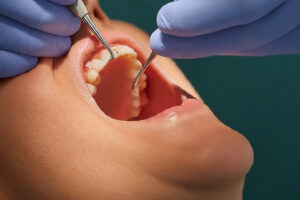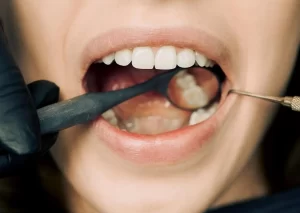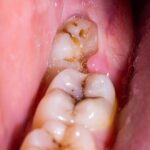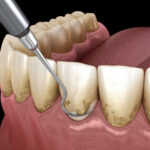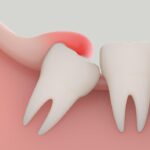Can I Use Nitrofurantoin for Tooth Infection?
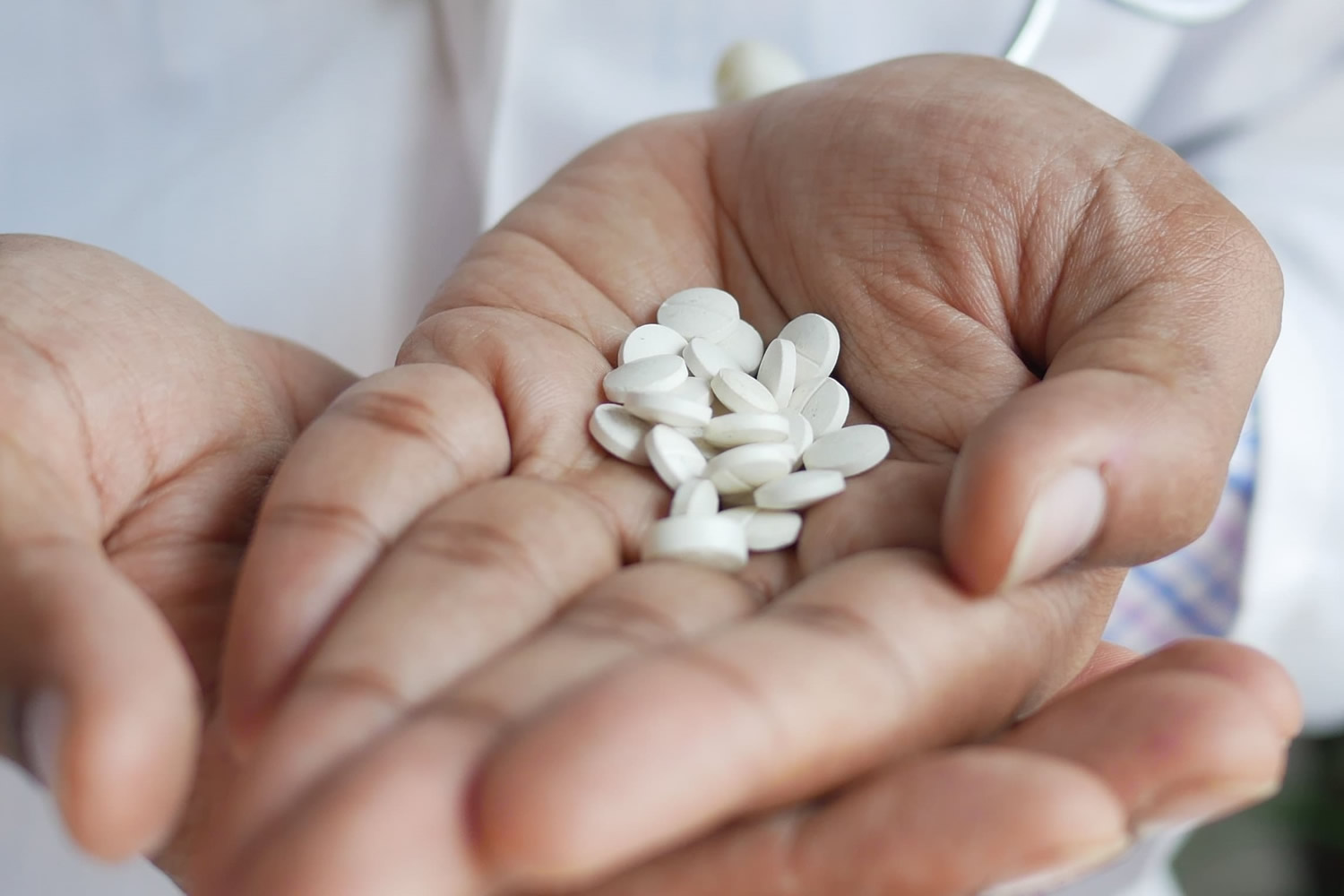
Nitrofurantoin is an antibiotic that’s primarily used to treat urinary tract infections (UTIs) caused by certain types of bacteria. It works by stopping the growth of bacteria.
Please note that Nitrofurantoin is not typically used for treating tooth infections.
Key Takeaways
- Nitrofurantoin is for UTIs, not teeth. It works against specific bacteria found in the urinary tract, not the ones that cause dental infections.
- Wrong antibiotic = problems. Using the incorrect antibiotic might not cure the infection and contributes to the growing problem of antibiotic resistance.
- Dental infections need specific antibiotics. Penicillins (like amoxicillin) and clindamycin are the typical choices because they target the bacteria most common in the mouth.
- Dentists are the experts. They’ll diagnose the type of dental infection you have and prescribe both the correct antibiotic (if needed) and a dental procedure to eliminate the infection’s source.
Table of Contents
Is Nitrofurantoin for Tooth Infection an Effective Treatment?
Nitrofurantoin is an antibiotic that is primarily used for treating urinary tract infections (UTIs) caused by susceptible strains of bacteria. It works by damaging bacterial DNA, effectively killing the bacteria causing the infection. It is not typically recommended for the treatment of dental infections.
Tooth infections are usually caused by bacteria that invade the tooth’s pulp, leading to abscesses that can spread to surrounding tissues. Alternative antibiotics for tooth infections usually includes penicillins, such as amoxicillin, or clindamycin for individuals allergic to penicillin. These antibiotics are chosen for their effectiveness against the types of bacteria commonly found in dental infections.
Nitrofurantoin’s effectiveness is mainly within the urinary tract, and it is not an appropriate choice for endodontic infections due to its specific action and absorption characteristics, which are optimized for targeting urinary tract pathogens.
Nitrofurantoin’s Effect on Dental Infections
Nitrofurantoin (macrobid) is specifically targeted at treating and preventing urinary tract infections (UTIs) caused by certain bacteria. It works by damaging bacterial DNA, thus inhibiting bacterial growth and replication. Due to its specific mechanism of action and the types of bacteria it targets, nitrofurantoin is not typically used in dentistry.
If you have an infected tooth or gum disease, they are caused by different types of bacteria than those causing UTIs. This is why the antibiotics chosen for dental infections are those with effectiveness against the bacteria commonly found in the oral cavity.
Nitrofurantoin’s effectiveness against urinary pathogens does not translate to efficacy against bacteria responsible for dental infections, so you should avoid using it. Take an antibiotic that is appropriate for the specific type of bacteria causing the infection.
Misuse of antibiotics, such as using an inappropriate antibiotic for a particular infection, can contribute to antibiotic resistance and may not effectively resolve the infection.
How Nitrofurantoin Works Against Dental Infections
For dental infections, the use of nitrofurantoin is not standard. Dental infections are typically caused by a different range of bacteria than those found in the urinary tract.
The most common pathogens involved in dental infections include anaerobic bacteria and facultative anaerobes such as Streptococcus spp., Prevotella, and Fusobacterium.
The antibiotic treatment for dental infections often involves drugs that are more effective against these types of bacteria, such as penicillins (e.g., amoxicillin) or clindamycin for individuals allergic to penicillin.
Nitrofurantoin’s mechanism of action involves several biochemical reactions that interfere with bacterial enzymes and other cellular processes critical for bacterial survival and replication.
Its specific activity spectrum and mechanism mean it’s not typically the first choice for treating infections outside of the urinary tract. On top of that, its poor tissue penetration, especially in non-renal tissues, makes it less effective for infections not localized to the urinary tract.
While theoretically, any antibiotic could exert some level of antibacterial effect on various infections if the pathogens are susceptible, the choice of antibiotic is guided by the infection site, the most likely causative bacteria, and the drug’s pharmacokinetic properties (e.g., how well it is distributed to the infection site).
While nitrofurantoin is an effective treatment for UTIs, its use against dental infections is not supported by clinical practice guidelines, and other antibiotics are preferred for these conditions.
Potential Side Effects of Nitrofurantoin
Nitrofurantoin is an antibiotic used to treat urinary tract infections (UTIs) and not for endodontic treatment, for which it has limited effectiveness. Like any medication, nitrofurantoin may have possible side effects, although not everyone experiences them.
The potential side effects of nitrofurantoin can range from mild to severe and include:
Common Side Effects
- Nausea and vomiting
- Diarrhea
- Headache
- Dizziness
- Loss of appetite
- Abdominal pain
Less Common Side Effects
- Changes in liver enzymes (may indicate liver damage)
- Lung problems, including shortness of breath, cough, and lung inflammation
- Allergic reactions such as skin rash, itching, or hives
- Peripheral neuropathy (nerve damage that can cause tingling, numbness, and pain in the hands and feet)
- Changes in urine color (brown, yellow, or dark urine)
Rare but Serious Side Effects
- Hemolytic anemia (a condition where red blood cells are destroyed faster than they can be made)
- Hepatitis (inflammation of the liver)
- Pulmonary fibrosis (scarring of the lung tissue)
- Stevens-Johnson syndrome (a severe skin reaction)
- Clostridium difficile-associated diarrhea (a severe intestinal condition)
Use in Specific Populations
Nitrofurantoin (macrobid) treats urinary tract infections and is generally contraindicated in people with severe kidney dysfunction, as impaired renal function can lead to drug accumulation and increased risk of toxicity.
It is also advised to use it cautiously in the elderly due to the increased risk of side effects, especially lung and liver problems.
Alternative Treatment Options for Dental Infections
For dental infections, such as tooth abscesses or gum infections, treatment aims to eliminate the infection and prevent complications.
While antibiotics like amoxicillin or clindamycin are commonly prescribed to combat the infection, especially if it has spread or is particularly severe, there are several alternative treatment options focusing on both immediate relief and long-term solutions.
If you have a tooth infection, consult a dentist for a proper diagnosis and treatment plan, as untreated dental infections can lead to more serious health issues. Do not take antibiotics unless your doctor has prescribed the treatment.
Here are some alternative treatment options:
1. Drainage
The first step in treating a dental abscess is often to drain the infection. This immediately alleviates pressure and pain and is necessary for clearing the infection.
2. Root Canal Treatment
For an infection within a tooth, a root canal procedure might be necessary. This involves removing the infected tissue from within the tooth, cleaning and disinfecting the inner chamber, and then filling and sealing it to prevent reinfection.
3. Dental Extraction
If a tooth is too severely damaged to be saved, extracting it may be the best option to remove the source of infection.
4. Improved Dental Hygiene
Implementing a rigorous dental hygiene routine is crucial in treating and preventing dental infections. This includes brushing at least twice a day, flossing daily, and using an antiseptic mouthwash to reduce bacteria in the mouth.
5. Salt Water Rinse
A natural disinfectant, salt water can reduce inflammation and relieve pain. Rinsing with a saltwater solution several times a day may help manage symptoms of a dental infection.
6. Herbal Remedies
Certain herbs have antibacterial properties and may provide symptomatic relief. For example, clove oil can be used as a temporary pain reliever for dental pain due to its eugenol content. However, the effectiveness and safety of herbal remedies can vary, and they should not replace professional dental treatment.
7. Over-the-counter Pain Relievers
While not a treatment for the infection itself, over-the-counter pain relievers like ibuprofen or acetaminophen can help manage the pain associated with a dental infection until you can see a dentist.
8. Cold Compress
Applying a cold compress to the cheek can help reduce swelling and numb the area, providing temporary pain relief.
What is a tooth infection?
A tooth infection, also known as a dental abscess or an abscessed tooth, is a painful condition caused by a bacterial infection in the tooth or surrounding structures. It can occur in different parts of the tooth for various reasons. The main types of tooth infections include:
Periapical Abscess
This occurs at the tip of the tooth’s root. It usually happens when decay advances deep into the tooth and reaches the pulp, the innermost part containing nerves and blood vessels. The infection then spreads down to the root and into the surrounding bone.
Periodontal Abscess
This type of abscess is more focused on the gums and the supporting structures of the teeth rather than the tooth itself. It often occurs as a complication of advanced gum disease (periodontitis), where pockets form in the gums, trapping bacteria.
Gingival Abscess
This infection is located in the gum tissue and does not affect the tooth or the periodontal ligament.
Symptoms of a tooth infection can include severe toothache, sensitivity to hot and cold, swelling in the face or cheek, tender or swollen lymph nodes under the jaw or in the neck, fever, and a foul taste in the mouth or bad breath.
If the infection is not treated, it can spread to other body parts, leading to more serious health problems.
Tooth infections are typically treated with a combination of antibiotics to fight the infection and dental procedures to remove the source of the infection, such as drainage of the abscess, root canal treatment, or extraction of the affected tooth.
You need to see a dentist as soon as possible if you suspect you have a tooth infection to prevent further complications.
Nitrofurantoin’s effectiveness is limited to certain types of bacteria and it does not cover the types of bacteria usually found in dental infections.
This is why it is not the right choice for treating a tooth infection. Using the wrong antibiotic can lead to antibiotic resistance and can fail to clear the infection, leading to further complications.
What is the role of antibiotics in tooth infections?
The role of antibiotics in managing tooth infections is aimed at controlling bacterial infections that cannot be immediately resolved through dental procedures alone.
Antibiotics are not a standalone treatment for tooth infections but are used in conjunction with other dental treatments to eliminate infection, alleviate pain, and prevent the spread of infection to other parts of the body.
Here’s a closer look at how antibiotics are used in the context of tooth infections:
Controlling the spread of infection
Antibiotics are prescribed to help control the spread of infection, especially in cases where the infection has extended beyond the tooth into the surrounding bone or tissue, or when there’s a risk of it spreading to other areas of the body, such as in cases of severe or rapidly progressing infections.
Pre-operative use
In some instances, antibiotics might be given before dental procedures to reduce the risk of spreading the infection during the procedure, especially for patients with specific health conditions that put them at higher risk for infection.
Post-operative Use
After a dental procedure such as a tooth extraction or a root canal, antibiotics may be prescribed to ensure that any residual infection is cleared up, particularly if the infection is severe or if the patient has a weakened immune system.
Preventing Bacterial Endocarditis
For patients with certain heart conditions, antibiotics may be prescribed before dental procedures to prevent bacterial endocarditis, an infection of the heart’s inner lining or valves.
Limitations and Considerations
Note that antibiotics are not effective against all dental problems. For example, they cannot cure a toothache caused by nerve damage or repair damage caused by tooth decay.
Antibiotics are also not always necessary for dental abscesses if the source of the infection can be removed immediately via dental treatment.
Beware of Antibiotic Resistance
The misuse and overuse of antibiotics have led to a significant public health issue: antibiotic resistance. This makes it crucial for dental professionals to prescribe antibiotics only when necessary and for patients to take them as prescribed.
The choice of antibiotic depends on the type of bacteria causing the infection and the patient’s medical history. Common antibiotics for tooth infections include Penicillin, Amoxicillin, Clindamycin, and Metronidazole, among others.
If you suspect you have a tooth infection, see a dentist or a healthcare provider for an accurate diagnosis and appropriate treatment. Self-medicating with antibiotics not suited for the type of infection can be harmful.
Your healthcare provider will choose an antibiotic based on the severity of your infection, your health history, and the specific bacteria involved in your case.
Nitrofurantoin, specifically, is not typically used for tooth infections; it’s more commonly prescribed for urinary tract infections.
FAQ
Is Nitrofurantoin good for tooth infection?
Nitrofurantoin is an antibiotic that is primarily used to treat urinary tract infections (UTIs) and is not typically recommended for tooth infections. Tooth infections are usually caused by bacteria that are different from those that Nitrofurantoin is effective against. The antibiotics commonly prescribed for dental abscesses or tooth infections include Penicillin, Amoxicillin, Clindamycin, and Metronidazole, which are more suited to target the bacteria found in oral infections.
Will nitrofurantoin treat an abscess?
Nitrofurantoin is not typically used to treat abscesses, including dental abscesses, because it is primarily effective against urinary tract infections and has limited tissue penetration. Other antibiotics are preferred for treating abscesses.
What is nitrofurantoin used for in dentistry?
Nitrofurantoin is not typically used in dentistry. It is an antibiotic prescribed mainly for urinary tract infections and is not effective against the types of bacteria commonly associated with dental infections.
What infections can nitrofurantoin treat?
Nitrofurantoin is primarily used to treat and prevent urinary tract infections (UTIs) caused by susceptible strains of bacteria, including:
– Acute cystitis: It is effective in treating lower urinary tract infections, particularly acute cystitis, in women.
– Prophylaxis: It can be used for the prevention of recurrent UTIs in patients with frequent infections.
The bacteria that nitrofurantoin is commonly effective against include Escherichia coli, Enterococcus faecalis, Staphylococcus aureus, and certain strains of Klebsiella and Enterobacter species.
What is the best antibiotic for a bad tooth infection?
The best antibiotic for a severe tooth infection is typically Amoxicillin, often chosen for its effectiveness against the common bacteria found in dental abscesses. If someone is allergic to penicillin, Clindamycin is a suitable alternative. Antibiotics should be used alongside dental treatment, such as drainage of the abscess or root canal therapy, as they cannot cure the infection alone. The specific antibiotic choice should be guided by a dentist, considering the patient’s medical history and the infection’s severity.
Fact Checked
Our dedicated team rigorously evaluates every article and guide to ensure the information is factual, up-to-date, and free of bias.
Updated Regularly
We update our articles and reviews regularly to ensure you have access to the latest data in the dental industry.
The content on Dental3DU’s blog is intended for educational purposes only. This information should not be relied upon as professional medical counsel. Be sure to always consult with your dentist about the dangers and benefits of any medication, treatment or procedure.


